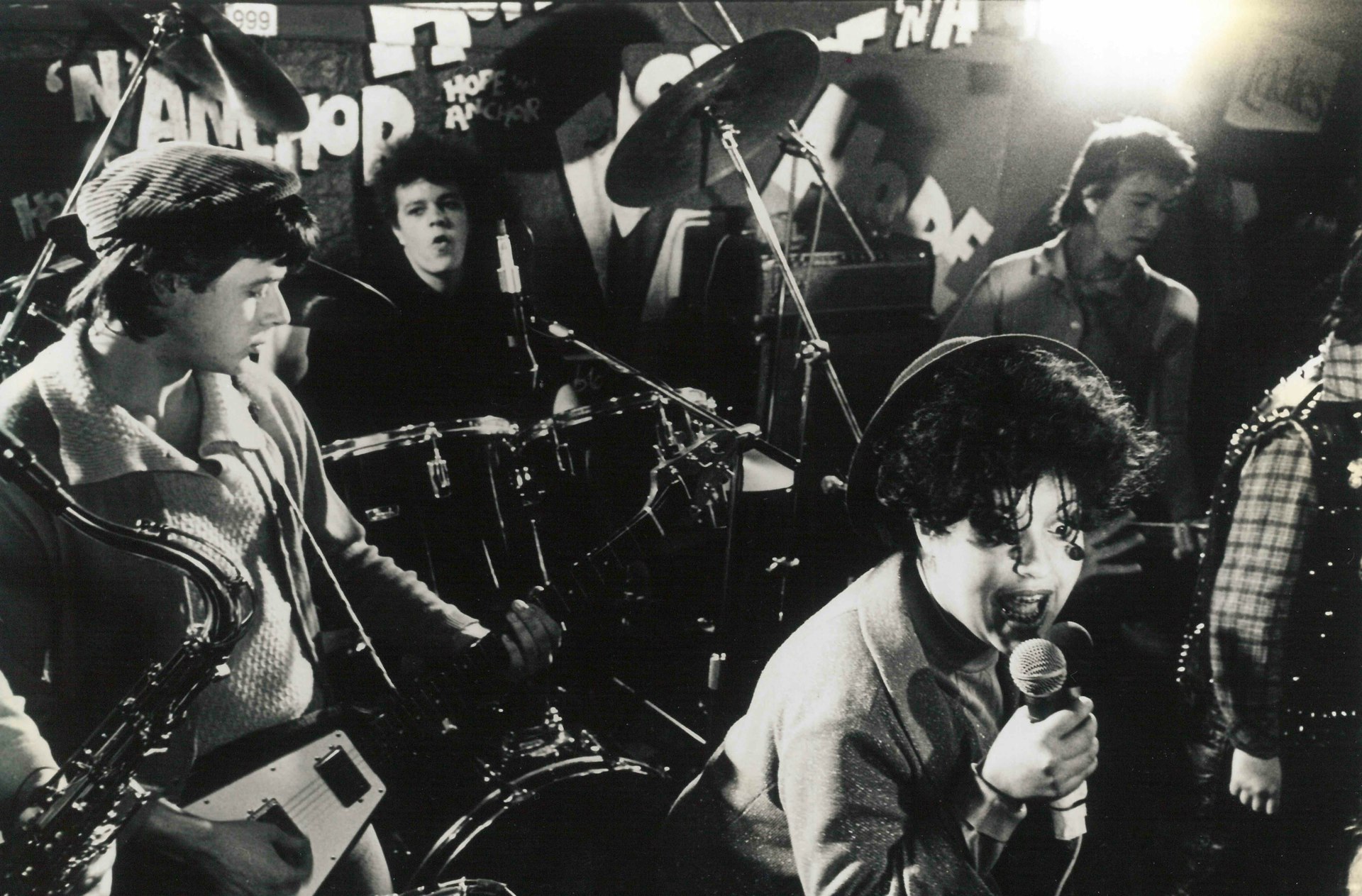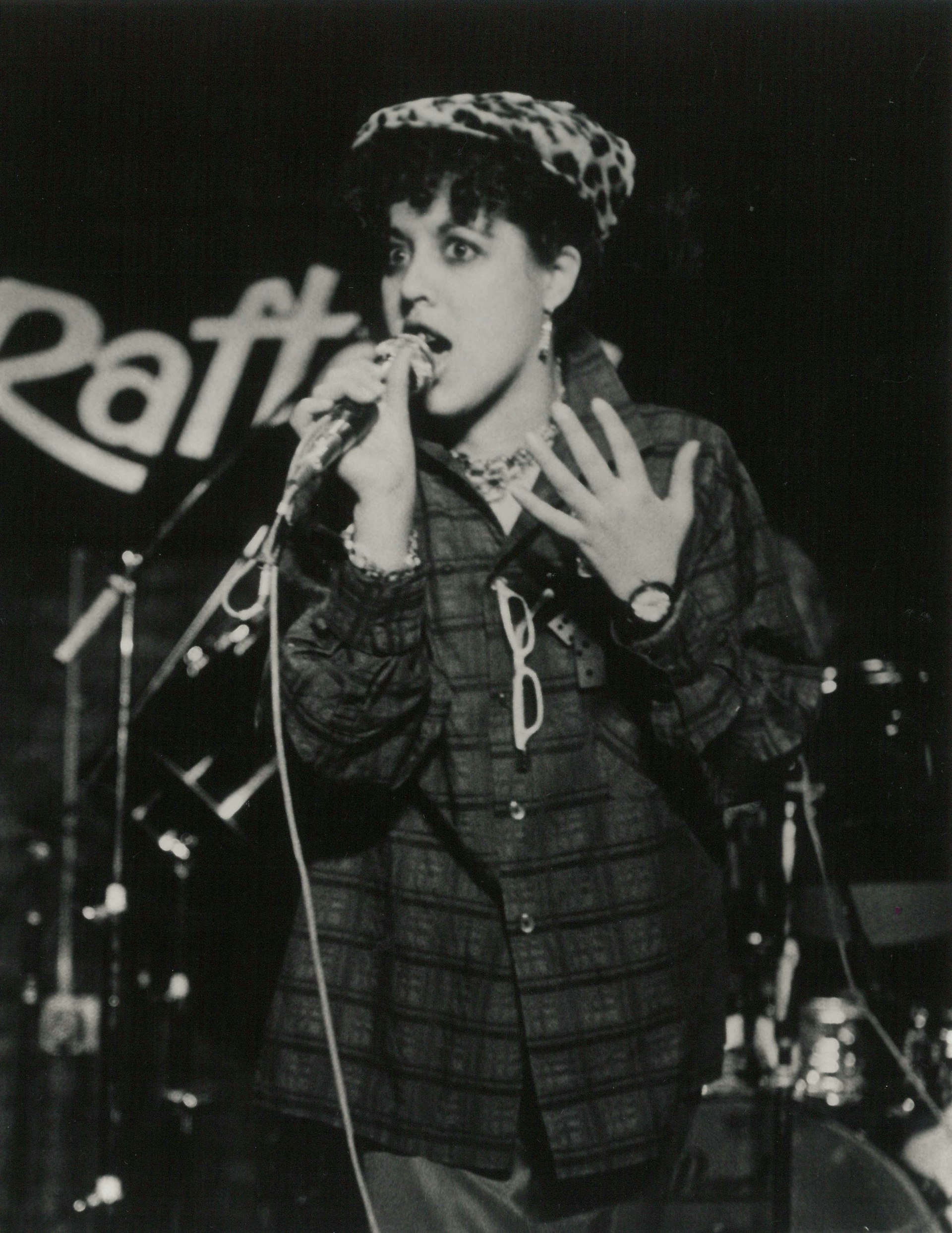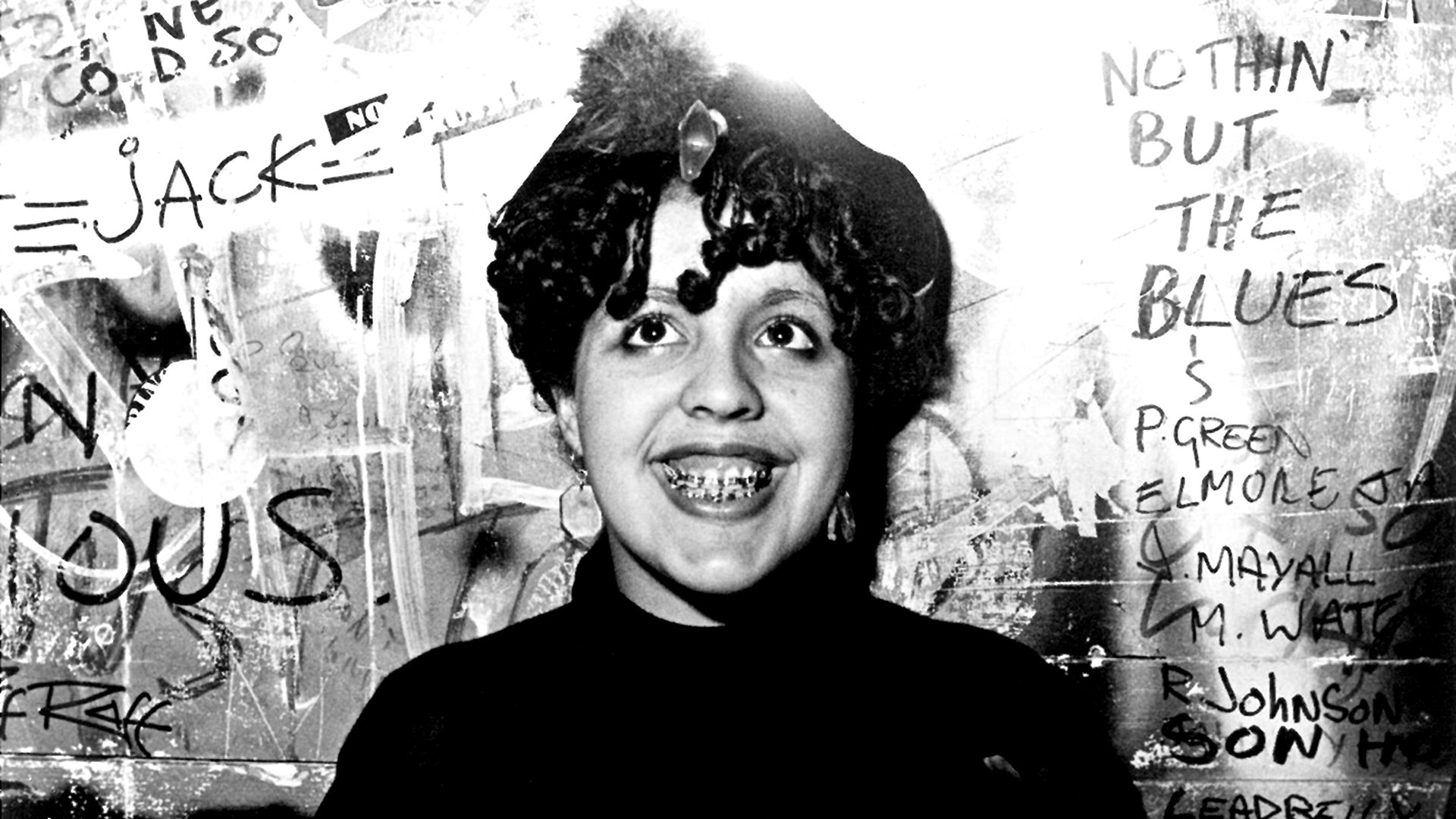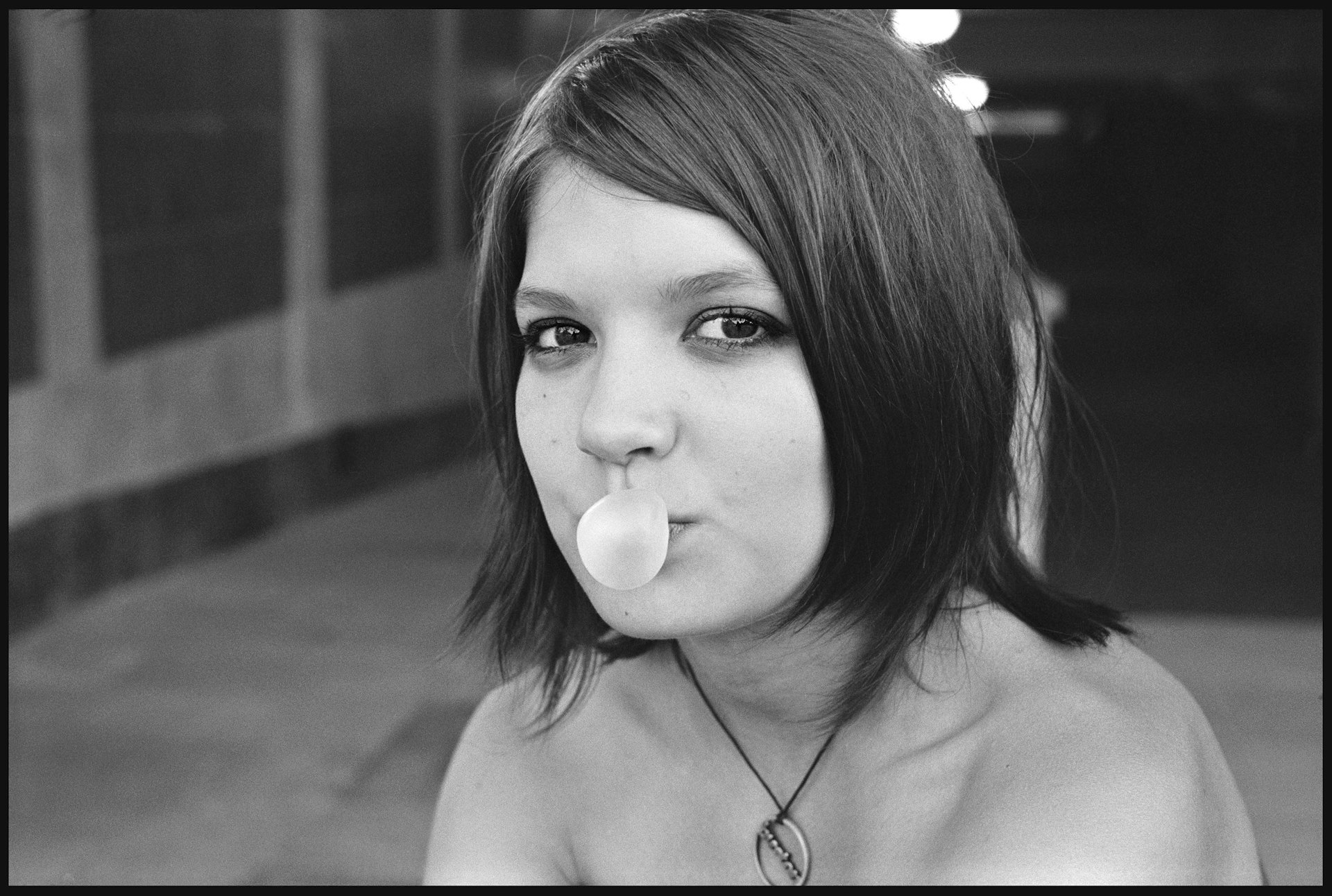
My mother, the punk rocker
- Text by Biju Belinky
- Photography by Falcon Stuart
Poly Styrene was many things: an icon, a young girl who refused to be sexualised, and, as the face of The X Ray Spex, she was the woman who showed the world that punk wasn’t just for white boys and their bondage trousers. Born Marianne Joan Elliott-Said, she introduced the world to a new sound of rebellion, and used her uniquely strong voice to sing about identity, as well as consumerism and everything else her eyes could see unfolding in 1976 Britain with a precise perspective that is rare to this day.
As well as all those things, Poly was also Celeste Bell’s mum. And although she was raised away from her mother’s punk days, Celeste set out to celebrate the mark Poly left in history, and tell her unique, largely untold story to more people. Using her mother’s diary entries and the huge amount of artwork passed on to her by a previous manager, Celeste, alongside director Paul Sng and writer Zoë Howe, is creating a dialogue between her and her now deceased mum in documentary form.
Looking to tell the multifaceted story of the frontwoman through a personal perspective that is rare in biopics, I Am A Cliché is set to show Poly was anything but one.
What prompted you guys to start this documentary?
Celeste Bell: I was really interested in telling my mum’s story. A few years before, when she passed away, I was given by her former manager an archive of materials. It was mainly artwork – original artwork – that my mum had done for all the merchandising of The X Ray Spex. She created all her own album covers, t-shirts, posters, and there were also lots of unseen photos and song lyrics. That inspired me to try and do something with them. That’s when I contacted Zoë Howl, to see if she was interested in writing a book with me – almost like an art book. She then reached out to Paul. That’s pretty much how it all got started.
How has your process as a daughter been, looking through all of these things?
I didn’t really look through them for a few years. My mum passed away six years ago, and it took me three years to really be able to go through all of them. One reason is because there was a lot, and it needed organisation. The other was because my mother had just passed away and I wasn’t really ready. When I did finally go through everything and I organised it properly, I saw that I was able to reconnect with my mum in a new way, and discover things that I didn’t know about her, or didn’t really realise about her. For example the extent to which she created all this artwork. It was a really amazing experience for me.

Falcon Stuart
How has the process of deciding what to put in and what to leave out?
In the film we’ll be focusing in never before seen footage – my mum’s manager at the time was a filmmaker, and he took a lot of behind the scenes footage of my her and the band. In terms of artwork we’re really lucky, because, since we’re putting together both a film and a book, that means that any artwork that we can’t show in the film will be seen in the book. We’re going to get to include everything.
What’s your favourite story that you think you’re going to be featured on the documentary?
There were so many – we’re also going to use my mum’s diaries. Maybe seven or eight years ago my mum wrote a retrospective diary called “Diary of the 70s”, looking back at key moments of her time in The X-Ray Spex, before, during and after. She basically took each song from the album Germ Free Adolescents and wrote a diary entry about what she was doing at the time it was written.
That’s going to be really important for the film, because we can use my mum’s own words as as a reference point for each significant moment. For example, there’s a song called Warrior in Woolworths – she worked as a typist in the Woolworths office, and everyone that worked there was white – my mum was mixed race, so when she started the job, they sat her next to the only other mixed race person. That was part of the inspiration behind the song. In her diary entry she describes that scene. It’s amazing we can have her own words in her documentary.
Which is quite different from having a detached narrative in the documentary, or speaking for her…
Exactly. The idea of the documentary will be to have a dialogue between myself and my mum, and because we have this diary it’s not just me interpreting things.
In the IndieGogo page you mention tackling complex topics like racism and mental health. Why did you feel like that was needed, and how are you feeling about it?
There are lots of important sensitive subjects to explore – mainly to do with mental illness, because my mum suffered from Bipolar Disorder. It’s a difficult subject for me, and we want to talk about it, but we don’t want to make it the focus of the documentary, since the focus is the celebration of my mums achievements. But it’s still something that’s relevant. There was a period of her life when my mum went to the States to film, and when she got back she had her first breakdown. She finished their album after that – you can really see her mental state in some of the lyrics. A song like The Day The World Turned Day Glo, I think, is quite important.
When she went to New York she was quite overwhelmed with all the intensity of the city and all the consumerism. She’d always been writing about consumerism and interested about it, but she was probably not prepared for it before she went to the states. It was a combination of lots of things, they were staying in Times Square, and New York is very different in ’78 than it is today.
When she came back, she broke down, and she hallucinated and saw a pink UFO. There are certain songs where you can of see a lot of what was going on in her mind at that time. There are also concerts that she did after the breakdown, when she was on medication, which made it a very different performance. She was a lot more confused than she would’ve been the year previous.
It’s really important to address the breakdown and the Bipolar, without focusing too much on it – it was an illness she struggled with her whole life, but it didn’t define her either. For my mum it’s something she probably wouldn’t have even wanted to talk about, so it’s important to be respectful of how my mum would’ve wanted to talk about it.
When you were younger she’d already left punk, but how did her punk identity and “icon” status factor into your experience growing up?
I was definitely aware of her importance – I mean, I didn’t really know what a punk was as a child, but I was aware that my mum was well-known. People would stop her in the streets sometimes and say how much they liked her music. When she was doing interviews she’d always take me along, so I was very much aware that my mum was a musician and that she was popular. I wasn’t aware of her being an icon, because when you grow up with a parent that’s a little bit famous you just take it for granted, I suppose.
How are you negotiating, in the documentary and the dialogue you guys are having, the idea of your mum as your mum and your mum as an artist?
Those two aspects are really separate for me, and that was always clear. My mum was my mum and the work that she did seemed almost dissociated from her for me, especially her early stuff. She went through a period where she really wanted to just distance herself from punk and that whole scene. I think I see this project, as more focused on my mum as an artist.
It’s personal, of course, but it’s not the story of our relationship, you know – that’s a different story. Maybe it’s a less positive one in many ways, because my childhood wasn’t necessarily a very happy one. That wasn’t because she was a bad mother, but because of certain aspects of her illness, or how I was raised in a religious commune. All this stuff that is a completely different story, and not one I want to tell.
I’m really motivated to do this documentary because my mum as an artist is, whether she was my mother or not, is someone who I really admire and who I think deserves a lot more recognition. When I discovered her music as a teenager, I genuinely loved it. I would’ve loved it regardless of blood ties – my mother as an artist is someone I admire, respect and want more people to know about.

Falcon Stuart
You say that her voice is more relevant than ever today – why?
I think she was very much ahead of her time. She was talking about the world as she saw it in the seventies, but in many ways, it was the world we live in now. She was on the edge, the precipice of globalisation and extreme consumerism, neoliberal capitalism… these were all things she could see starting.
She also spoke about identity, and nowadays we live in a time where identity politics are more prevalent than ever. The struggles she was talking about – identity in the sense of not knowing who you are, struggling with what you want to represent or what you want people to see you as, they were as relevant then as they are now, when we have gender politics taking a really important space in the world. It’s not just feminism anymore either, it’s being trans, non-binary. She was definitely not as surrounded by these issues at the time, but she saw them.
I think, as well, in terms of being a woman in a male world, the punk music world, and the – not discrimination – but real sexism. She always had it very clear that she didn’t want to be sexualised, and she fought against that in many ways. Today, I think, despite all of the achievements women have and how far we’ve come, maybe we’re more sexualised than ever…When you look at posters in the 70s and 80s they are really not sexy compared to today. My mum felt like Blondie was really sexualised, but compared to Lady Gaga, she’s really tame.
There’s the argument that women now are choosing to use sex as a statement – but I think she’d have been very sceptical about that. That’s why she avoided – she was frumpy on purpose. She went out of her way not to be cute or sexy. I feel like there’s very few female artists who are willing to do that, because there’s still this idea that you have to be sexy because that’s what sells. Her message in that sense is super relevant for young girls who now are being sexualised or sexualising themselves at a really young age.
You can support Poly Styrene: I Am A Cliché through their website.
Enjoyed this article? Like Huck on Facebook or follow us on Twitter.
